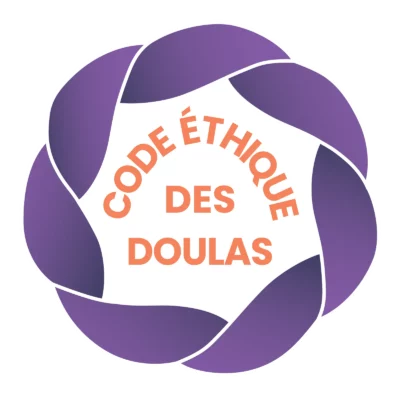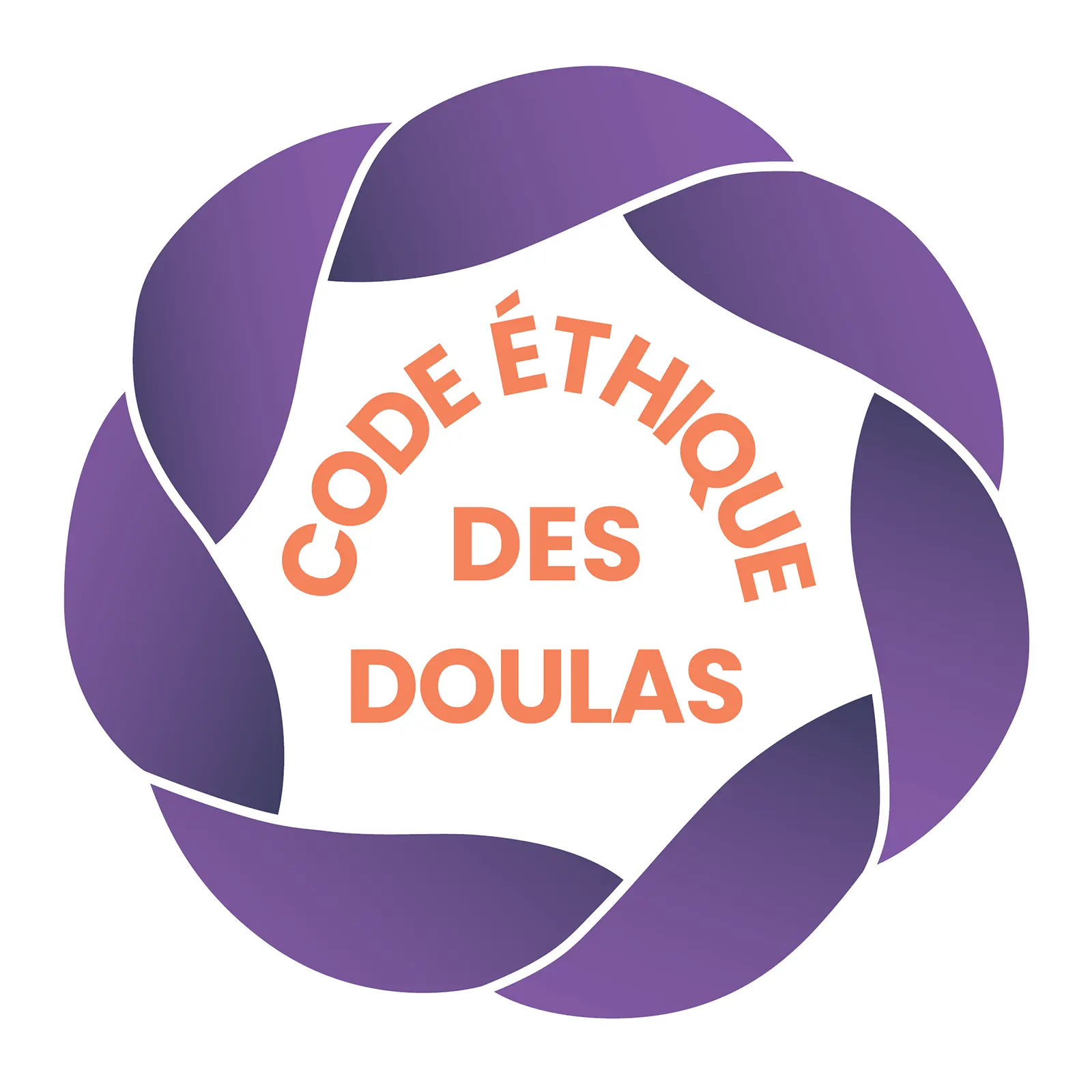Code of Ethics for Doulas
Practising in France
Introduction
A collective of doulas practising in France was formed in 2025 as a result of the discussions and momentum generated during the European Doula Network seminar held in Lille in October 2024. Today, it brings together associations, professional collectives and training centres committed to supporting people through all the important stages of life.
These include: AFMAN association, Association Doulas de France, Annuaire Doula, and the following training centres: Centre Galanthis, Doula des Lunes, École Présence, École Yoga Doula, Envol & Matrescence, as well as the Collectif des Doulas Radicales and the European Doula Network.
The collective has drafted this Code of Ethics to establish a shared professional framework and to define the fundamental ethical principles guiding the practice of doulas in France.
1. Definition of doula support
Doulas provide their presence and support during key stages of life, including (but not limited to): puberty, preconception, the perinatal period, menopause, gender transition, bereavement, and end-of-life care. Doulas provide emotional, informational and practical support to individuals, parents and families who seek their services. They offer respectful, caring and non-discriminatory support to all the people they accompany throughout their life journey. They endeavour to provide a supportive relationship that honours the autonomy of each person they accompany.
2. Scope of professional competence
Doula support requires specific skills, particularly in empathetic presence, non-directive guidance (person-centred approach), and active listening, in order to provide appropriate and compassionate support to families. Doulas are trained in these core skills and commit to ongoing professional development throughout the course of core skills and commit to ongoing professional development throughout the course of their practice. Doulas provide exclusively non-clinical and non-medical support. They are not qualified to perform medical acts or to engage in medical supervision during pregnancy, childbirth, or at end-of-life. They provide exclusively non-medical support. In particular, they are not qualified to provide medical supervision of a pregnancy, childbirth or the end of life. Doulas practise within the legal boundaries of their profession and refer individuals to qualified professionals when situations fall outside their scope of competence.
3. Respect for the person being supported
Doulas commit to a non-discriminatory practice that fully respects the dignity, identity, and autonomy of every individual, irrespective of gender, sexual orientation, cultural or religious background, physical or mental health, socioeconomic status, or any other personal characteristic. They are professionally accountable to working in an ethical and responsible manner and to honouring their commitments to the people they support.
4. Neutrality and non-judgement
Doulas provide non-judgemental support. They do not impose personal beliefs, opinions, or ideologies. Instead they commit to respecting the values, perspectives, and choices of those they accompany.
5. Confidentiality
Doulas are bound by a strict duty of professional confidentiality regarding the individuals and families they support. They shall not disclose any personal information to other professionals without the consent of the individual concerned. Doulas maintain discretion in all communications, ensuring the anonymity and privacy of individuals is preserved, particularly in public or published materials.
6. Individual limits
The relationship between a doula and a person they support is a mutually agreed-upon professional engagement. Either party may choose to terminate this professional relationship at any time, subject to any existing contractual terms. Doulas may refer individuals they support to other doulas or appropriate professionals when necessary.
7. Legal responsibility
Doulas comply with French legal and regulatory frameworks regarding their professional status and scope of responsibility. They are expected to maintain a clear and current understanding of their legal responsibilities regarding contractual obligations and scope practice and to practise accordingly.
8. Relationship with other professionals
Doulas work in a spirit of cooperation, communication and mutual respect with healthcare professionals and social service workers in order to guarantee comprehensive support focused on the needs of the people they accompany.

Doulas who align themselves with the values of this Code commit to practising their profession in accordance with ethical principles, applicable French legislation, and the recognised standards and customs of their field.
